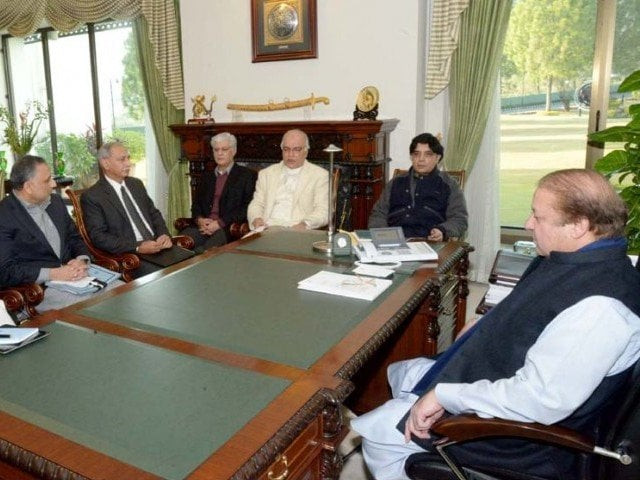Future strategy: Civil-military leaders to meet on NAP soon
Govt is waiting for military leadership to ‘settle down’: officials

At present, Prime Minister Nawaz Sharif oversees NAP implementation as part of the policy to step up progress on points on which little or no progress has been made. However, the government has not summoned a meeting chaired by the prime minister on NAP ever since the new army chief took charge in November.
Official sources said a meeting is expected in the coming days where both the civilian government and military command are likely to share their views on a number of crucial issues including anti-terrorism laws, military courts, setting up of a central record office to stop terror funding to banned organisations, disrupting financial connections between criminal networks and terrorist organisations, crackdown on banned organisations, military action against terrorist organisations including sectarian outfits, formulation of strategy to counter hate speech and taking to task sleeping cells of criminal networks, banned outfits and terrorist organisations that are reportedly existent across Pakistan.
The two-year term of military courts lapsed on Saturday and reports suggest the government will now refer terrorism cases to anti-terrorism courts (ATCs).
Officials said this arrangement will continue until the government and military command agree on a future course, which may include assigning special powers to ATCs, enacting effective counterterrorism laws or restoring a modified version of the Protection of Pakistan Act (PPA), 2014, which lapsed on July 15.
“The military is a key stakeholder in the counterterrorism drive. Its input cannot be overlooked,” a government official privy to developments said.
On October 14, the NAP implementation committee decided to set up a central record office to identify criminals in the ‘shortest possible time’ and to break the nexus between criminal mafias and terrorist sectarian outfits.
That same meeting also reviewed options to strengthen prosecution in terrorism cases, either through new effective anti-terrorism laws or by restoring PPA with necessary amendments.
Officials said the committee has submitted recommendations discussed in the October 14 meeting to the prime minister, but the latter has yet to convene a huddle to review them.
They said the planned meeting has been delayed because the premier wants the new army command to ‘settle down’ before taking any crucial decisions.
Prime Minister’s Adviser Ameer Muqam confirmed this while talking to The Express Tribune. He argued there was no delay in convening the meeting, only “it takes some time for things to settle down after a transfer of power in key institutions.”
“The important thing is that both the government and security command are on the same page on weeding out terrorism and extremism from Pakistan,” he said.
Published in The Express Tribune, January 8th, 2017.



















COMMENTS
Comments are moderated and generally will be posted if they are on-topic and not abusive.
For more information, please see our Comments FAQ